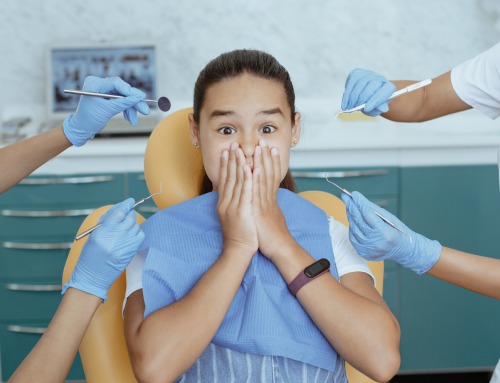Maintaining a healthy smile is crucial not just for aesthetics but also for overall health. Despite our best efforts with regular brushing, flossing, and dental check-ups, there are situations where tooth extraction becomes necessary. Understanding the reasons behind tooth extraction can help alleviate some of its anxiety and highlight its importance in maintaining optimal oral health. In this blog, we’ll explore the various scenarios where tooth extraction might be necessary and what you can expect from the procedure.
Why Tooth Extraction?
There are several reasons why tooth extraction might be required, and some of them aren’t due to poor oral hygiene – it can simply be genetic. Let’s explore these scenarios to understand better why this procedure is sometimes unavoidable.
Severe Tooth Decay
Tooth decay is one of the most common reasons for tooth extraction. When decay penetrates deep into the tooth, reaching the pulp and causing infection, it can lead to severe pain and swelling. In cases where a root canal treatment cannot save the tooth, extraction is the best option to prevent the spread of infection and further complications.
Gum Disease
Advanced gum disease, also known as periodontitis, can severely damage the structures that support your teeth, including the gums, ligaments, and bone. When this damage becomes extensive, teeth can become loose. In such cases, extraction may be necessary to preserve the health of the remaining teeth and surrounding tissues.
Trauma or Injury
Accidents happen, and sometimes, they involve our teeth. A tooth can be damaged beyond repair, whether it’s a sports injury, a fall, or any other type of trauma. Extraction might be the best course of action to prevent pain and further dental issues if a tooth is cracked, broken, or severely dislocated.
Overcrowding
In some cases, the mouth simply doesn’t have enough space to accommodate all the teeth. This overcrowding can lead to misalignment and bite problems. Dentists often recommend extraction as part of orthodontic treatment to create space for proper alignment and ensure a healthy bite.
Impacted Teeth
Impacted teeth are those that fail to emerge properly from the gums. Wisdom teeth, or third molars, are the most commonly impacted teeth. They may grow at odd angles, partially emerge, or remain trapped within the jawbone. Impacted teeth can cause pain, infection, and damage to adjacent teeth, making extraction necessary.
Orthodontic Preparations
Sometimes, tooth extraction is necessary before beginning orthodontic treatment. To achieve the best results with braces or aligners, one or more teeth might need to be removed to allow for proper alignment and spacing.
What to Expect During a Tooth Extraction
Understanding what happens during and after a tooth extraction can help ease anxiety about the procedure. Let’s break down the process and post-extraction care.
The Procedure
Tooth extraction is a routine procedure performed by dentists and oral surgeons. It can be done under local anesthesia to numb the area, and in some cases, sedation or general anesthesia may be used. The dentist will carefully remove the tooth, ensuring minimal discomfort.
Post-Extraction Care
After the extraction, following your dentist’s post-operative care instructions is crucial for a smooth recovery. This includes managing pain and swelling with prescribed medications, maintaining oral hygiene without disturbing the extraction site, and avoiding certain foods and activities to promote healing.
Preventing the Need for Tooth Extraction
Preventive care is critical to reducing the likelihood of needing a tooth extraction. Here are some steps you can take to maintain your oral health.
Regular Dental Visits
Regular dental check-ups and cleanings can catch problems early before they necessitate extraction. Your dentist can provide treatments and advice to maintain your oral health and prevent severe issues from developing.
Good Oral Hygiene
Brushing your teeth twice a day, flossing daily, and using mouthwash can effectively prevent decay and gum disease, which in turn reduces the likelihood of needing a tooth extraction.
Protective Measures
Using mouthguards during sports and avoiding hard foods that can damage teeth are practical steps to prevent injuries that might lead to extractions.
Hard foods such as ice, hard candies, and even certain nuts can crack or fracture teeth, especially if there is already some level of decay or weakness in the tooth structure. Chewing on hard objects like pens or fingernails can also cause similar damage. By avoiding these risky habits and choosing softer, tooth-friendly options, you can minimize the chances of accidental dental injuries that could lead to the need for extractions.
Tooth extraction, while often seen as a last resort, plays a vital role in preserving overall dental health. Whether due to severe decay, gum disease, trauma, or other reasons, understanding why extraction might be necessary can help you approach the procedure with confidence. At Somerset Dental, we’re committed to providing comprehensive care and guidance to ensure your smile stays healthy and bright. If you have concerns about your teeth or are experiencing dental issues, don’t hesitate to reach out and schedule a consultation. Let’s work together to keep your smile strong and healthy.
Have you had any teeth extracted in the past? Have you ever considered tooth extraction to solve a dental issue? Share your experience with our readers in the comments below.





